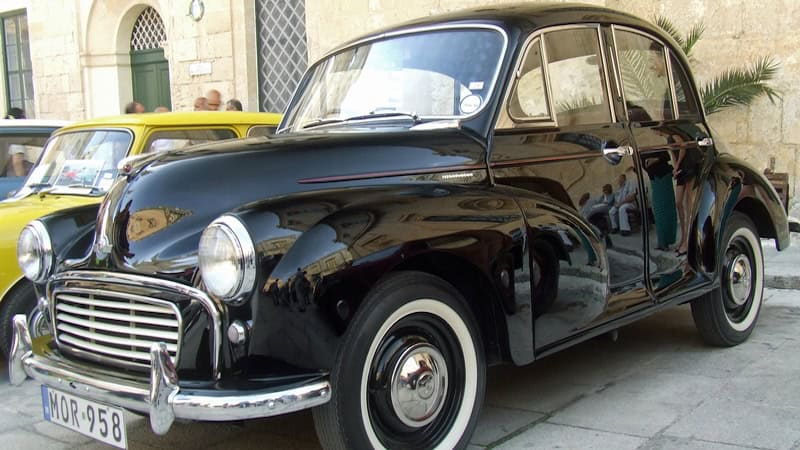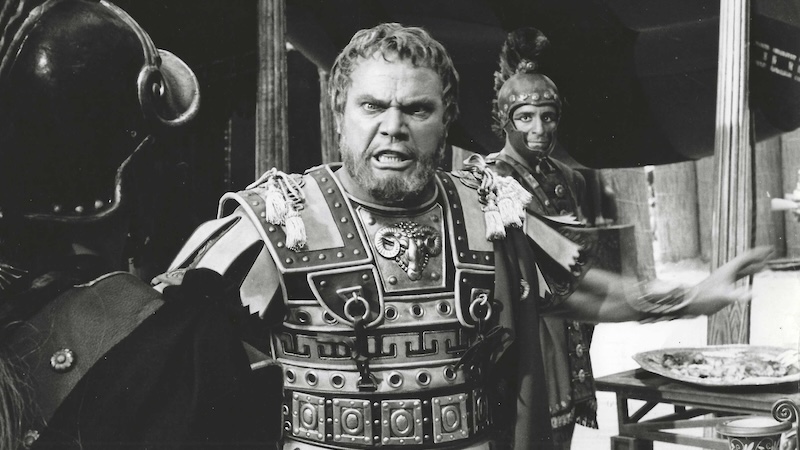A Stitch in Time
Remembering childhood automobile outings, including one very painful one

The memories of childhood have changed. What we recall from the mid-20th century is as different from what today’s children will recall, as different as the ways we spend free time then and now. Jackie Meekums-Hales, a retired teacher and writer from Somerset, England, remembers family automobile outings, including one that resulted in a “stitch in time.”
We didn’t have a car until the 1960s, when a relative went abroad to work and gave Dad a chance to buy his car at a discount. Cars were something only the better off had, when you lived in a suburb on the borders of Kent and London, with legendary buses that came along three at a time, then not for what seemed like ages. We lived a comfortable life, thanks to the hard work of Mum and Dad, but a car – that was not on our horizon, and the streets were blissfully empty for children to “play out” or whizz on their scooters or roller skates to the corner shop for a loaf of bread that cost 11d, or Dad’s five Player’s Weights.
So when our uncle gave us the chance, we jumped at being able to go for a ride in his old, black Morris with the running board, shiny leather seats, and a crank handle to start the engine. Sunday afternoons were outing afternoons, when we would usually go for a walk, but Uncle Bill gave us the chance to go further afield, to the countryside across the Kent border. The excitement was palpable, as we packed our picnics, maybe even with a bottle of pop for us, as bubbly as we were, as the adults had the ubiquitous flask of tea. We would cram ourselves into his car, Mum, Dad, my younger sister and I, the older children no longer keeping us company. My sister and I would sit on laps in the narrow back seat, with no such thing as seat belts, hoping Mum and Auntie Doll would not slide too much as we went round corners. Dad, of course, sat up front, next to the driver, because the children were the province of the women.
We would love to drive out into lanes, where the trees might meet over the top, and Auntie Doll would declare that we were in her fairy land. For ever more, her nieces would consider themselves in Auntie Doll’s fairyland, if the trees bowed themselves over the road and the magic of woodland flanked the roads. We might stop in a layby, and out would come the tea, as we sat at the side of the road, never having to consider the fumes of lorries and more than the odd car. We would pass the AA (Automobile Association) emergency phone boxes, and if we saw an AA man, he would salute, as he saw the metal badge proudly displayed on the front grille. Knights of the Road, we called them.
 Eventually, after travelling at an astonishing speed of about thirty miles an hour down country roads, we would arrive at our destination, perhaps a wood full of bluebells, their heads bobbing in a breeze and filling the air with that promise of sheer delight. We might drive to Dartford Heath, where the expanse of grass and shrub meant we could be let loose to run and hide, skip or throw a ball, and our dad and uncle would join in, while the women arranged the picnic and nattered, as only they could. Sometimes, we would go down by the river, the sea being a bit too far to drive for just a day, and we might catch “tiddlers” and paddle in the shallows.
Eventually, after travelling at an astonishing speed of about thirty miles an hour down country roads, we would arrive at our destination, perhaps a wood full of bluebells, their heads bobbing in a breeze and filling the air with that promise of sheer delight. We might drive to Dartford Heath, where the expanse of grass and shrub meant we could be let loose to run and hide, skip or throw a ball, and our dad and uncle would join in, while the women arranged the picnic and nattered, as only they could. Sometimes, we would go down by the river, the sea being a bit too far to drive for just a day, and we might catch “tiddlers” and paddle in the shallows.
The day that brought the stitch in time
One fateful day, we headed out, the usual tension of expectancy filling the air inside the tiny car, with laughter and singing of old, familiar songs making the journey itself part of the joy of the day. We stopped to have our picnic, parked on the grass, surrounded by trees and wildflowers, which we thought nothing of picking in those days. Clutching my hoard of dandelions, daisies, and anything else I could find, I jumped on the running board to hand them to Mum. I was so proud of my bunch of flowers that I knew she would love. I reached through the gap, big enough for my small hand, and suddenly the world exploded in a searing, all-engulfing pain.
Not realising my hand was in the gap between the hinges and the backward-opening door, someone had started to shut out the draught. They must have felt the resistance, as my fingers were trapped. My screams must have filled their ears, and all the laughter stopped. Silence, apart from my noise, as they prised my hand back out. They muttered around me, panic in their voices, but I was deaf and blind to anything but what I could feel. Before I knew it, we were bundled back into the car, and somehow, as fast as it would carry us, Uncle Bill headed for the hospital accident department.
I was told to be brave, as the doctor looked at the damage. Luckily, only one knuckle was crushed; the others had survived with no more than a scratch. He spoke to the nurse, and the nurse spoke to my parents, and I was ushered into a cubicle. Somehow, I gleaned that they would need to stitch the wound, but they didn’t talk to children much in those days, and I had little idea of what was involved, apart from what Mum had watched on “Emergency Ward 10,” one of her favourite television programmes. Over my head, my mother was told to wait outside, while I sat in a chair and tried not to look at what they were doing, the pain so strong that I couldn’t feel anymore. They didn’t make a fuss. I was just a child. No such thing as child psychology, comforting, or minimising the trauma.
With two big, black knots above the mess, they bound my finger and told me “There! It’s done!” packing me off to my parents with instructions about when to bring me back for the stitches to be removed.
It was a very quiet, subdued party that climbed back into the car to head for home. I was warned never to put my fingers in a hinge gap again. They didn’t really need to bother. I wouldn’t!
I never saw the flowers. Maybe they wilted on the back seat. Maybe they were abandoned, like our day out, but they would never be forgotten.
Jackie Meekums-Hales, a retired teacher, writes fiction, poetry and memoir, achieving “Between the Lines” publication of her début novel, “Shadows of Time” in 2022, at the age of 71. She and her sister self-published a collection of memoirs of a post-war childhood in “Remnants of War” in 2021, and this piece is a development of one of the memories mentioned. She has had various prose and poetry pieces published online and in anthologies over the years and belongs to a writing group in Somerset, England.
Read more childhood memories and other contributions from Boomer readers in our From the Reader department.
Have your own “stitch in time” childhood memories or other stories you’d like to share with our baby boomer audience? View our writers’ guidelines and e-mail our editor at Annie@BoomerMagazine.com with the subject line “‘From Our Readers’ inquiry.”



